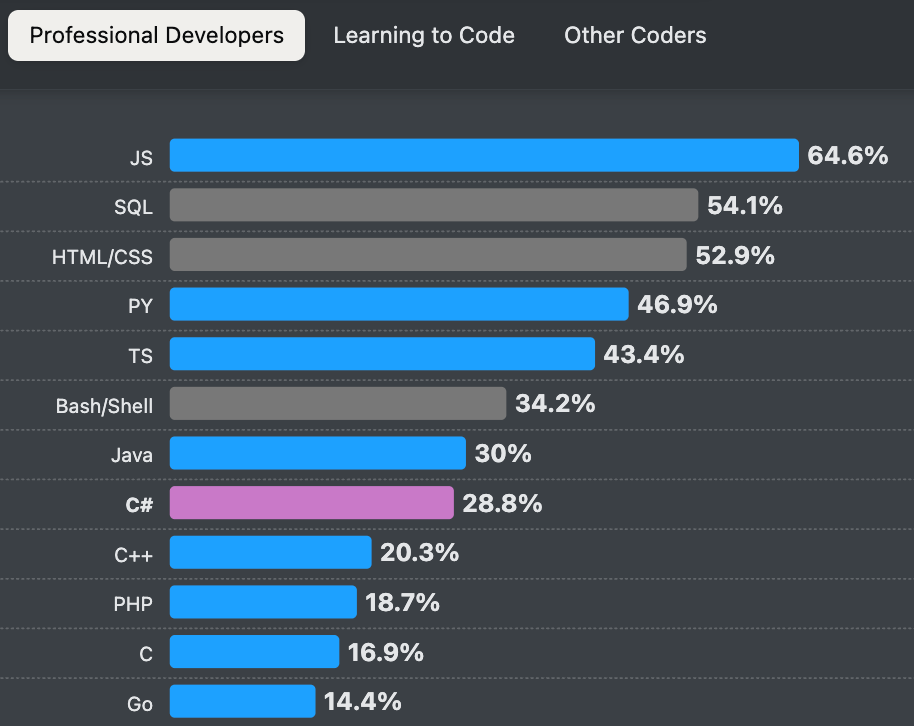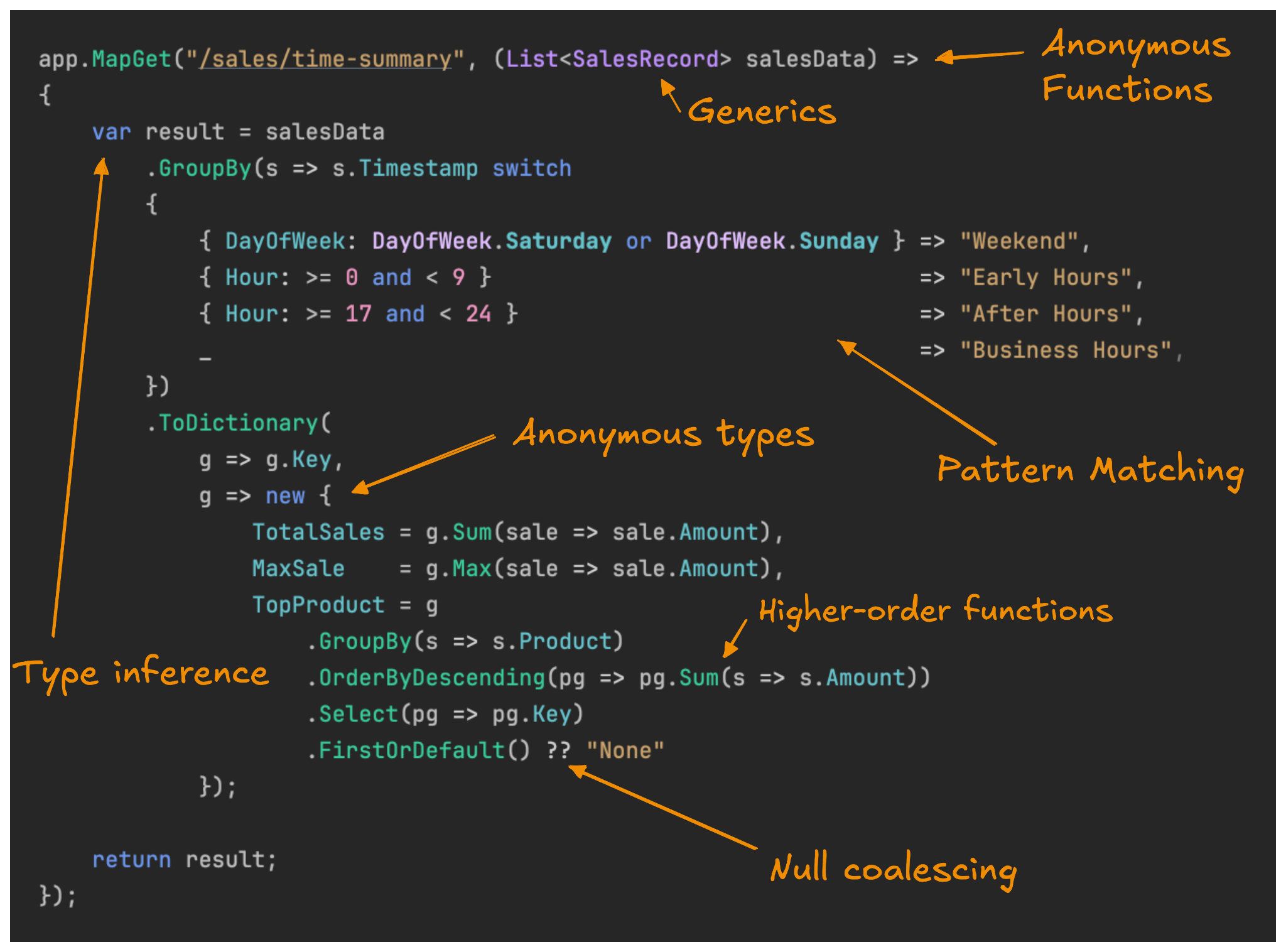Why we built our startup in C#
This is a guest blog post by Sam Cox. Sam is the Co-Founder & CTO of Tracebit.
When we started building Tracebit – a B2B SaaS security product – one of my key early decisions was to pick a programming language. While many startups gravitate toward Python, TypeScript, Golang, or Rust, I went a different way: C#.
I’ve blogged quite a bit about this decision before and I wanted to share a few highlights here.
Productivity First
I think a stack which lets you spend time on what actually matters is the core of a great developer experience. I wanted:
- an expressive, fully-featured language which would let us quickly test and refine ideas
- the assurance offered by static types when maintaining and refactoring code
- a stable platform that would still work well as our team and codebase grew
C# has allowed us to be highly productive from the earliest days and it feels like a really solid foundation to build on.
Modern, Open & Cross-Platform
I was pleasantly surprised to find that .NET is now fully open source and MIT-licensed. The cross-platform support lets us develop on MacBooks, and deploy to Linux containers on ARM cores. Microsoft’s “chiseled” container images are a nice touch too, giving us a lean deployment option which minimizes CVE management.
Popularity
 Stack Overflow Developer Survey 2024
Stack Overflow Developer Survey 2024
C# consistently ranks as a highly popular programming language, though perhaps without generating the buzz that some other languages might – especially among startups! This established presence gives us real advantages:
- A great talent pool from which to hire
- Plenty of world-class libraries at our fingertips
- Lots of documentation and examples when needed
- Well-traveled paths with fewer unexpected roadblocks
Rich Standard Library
The .NET ecosystem comes with quality libraries for just about everything we’ve needed. Along with the usual suspects (collections, JSON processing, etc), Entity Framework and ASP.NET stand out as excellent frameworks in which to build.
This has been particularly valuable for us as a security product. We have high standards for dependencies, and having so many trusted and well-maintained components available has saved us a lot of time!
Expressive language features

C# as a language has many nice features, such as LINQ, pattern-matching, anonymous functions, primary constructors and null-coalescing operators that make it both expressive and succinct. I’ve honestly found it a pleasure to read and write.
When it comes to the type system, I think C# has found a really nice balance – it’s powerful without feeling overly complex. I particularly like the support for generics, record types, and reflection.
Great Tooling
The development ecosystem offers some excellent tools:
- Powerful IDEs with great debugging and refactoring support
- Great static analyzers that will often suggest fixes automatically
- Sophisticated tooling for memory profiling and runtime diagnostics
These make it a joy to work with the language, and help avoid nasty surprises in production.
It’s Fast

While performance wasn’t our main reason for choosing C#, it’s certainly a nice advantage. It’s clearly a priority for the .NET team and each release brings meaningful performance improvements. We process a lot of data on behalf of our customers and I’ve been very impressed by the throughput we’ve been able to achieve with simple and idiomatic C# – while still offering many options to optimize hot code paths if necessary.
How It’s Going
After thousands of commits and over 100,000 lines of code, I’m very happy with our choice. We’ve brought on team members who had never used C# before, and everyone’s become productive surprisingly quickly – shipping code to production on their first day.
No programming language is perfect for every situation, and what works for us might not work for everyone. But C# has been a key part of Tracebit’s success so far. If you’ve overlooked C# based on outdated perceptions (like I almost did), I’d definitely recommend taking a closer look!
The post Why we built our startup in C# appeared first on .NET Blog.